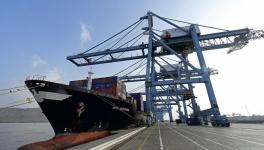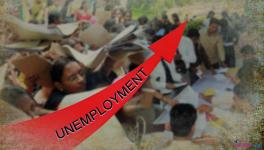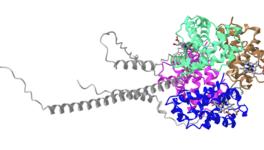AI Will Fail... But Not Why You Think
AI is now writing poetry, producing art, making music, which are all indistinguishable from what human beings create. AI engines have shown that they can do everything that we believed was uniquely human. And this is just the beginning. Yet, AI is bound to fail. And the reason is one word - Capitalism. Watch this video to know why.
You can read the edited transcript of the video below:
AI may process data fast, but humans have a heart that lasts.
Empathy, love and creativity are traits that machines lack in entirety.
Emotions, morals and intuitions are essential for human decisions.
Thus, AI may assist us in our tasks.
But it can never replace our unique human masks.
Not a great poem, but it is not bad considering it was written in less than 10 seconds, not by me, but ChatGPT. I'm sure ChatGPT would have come up with something much more complex and creative, more intellectual sounding if I had given it a more detailed prompt.
Mind you, there's GPT4 out there already. I don't have access to it, but it is supposed to be thousand times better and faster than ChatGPT.
Already, AI (artificial intelligence) is generating stuff that we simply can't tell that it wasn't made by a human being. And, I repeat, this is just the beginning. AI will become even more smart and even more creative. It wouldn't matter whether machines will be able to really understand and feel things or they'll only be able to mimic humans. As long as you and I are unable to make it out for all practical purposes, then AI will be exactly the same for us as a human being.
But still, AI is bound to fail. It will fail because of one single word, capitalism. You're probably thinking, what is this chap even talking about? But I will repeat, it is capitalism which will cause AI to fail.
Why? Let me explain this in more detail.
Every capitalist economy is broken up into two broad groups of people, capitalists, and factories, shops, restaurants and offices and other assets and employees and workers, who work for capitalists, producing goods and services for them.
Capitalists sell goods and services to each other and to workers and earn profits from it. Workers, on the other hand, sell their labour power, their ability to do labour and earn wages and salaries in return. Capitalists spend a part of their profits to buy things they consume and what remains is reinvested in their businesses. They consume most of what they earn and then save some amount for big ticket expenses and future needs. Note that capitalists have to sell their goods and services to others to be able to make profits and a large part of that comes from what their own employees buy because after all the capitalist class is very small.
The overwhelming majority of people in any capitalist economy earn their living by working for others. If a large number of workers lose their jobs, become unemployed, capitalists will be in big trouble because they won't find buyers for what they are selling. This is actually an endemic problem of capitalism.
Imagine a capitalist called Mr Smith who makes pressure cookers, for instance. Mr Smith wants to sell more pressure cookers. That's what capitalists do. So, the best way to do that is to charge less than the competitor. But what if that would eat into his profit margins, right?
So, how can you reduce prices without affecting profits? There are two ways. First, Mr Smith could produce more pressure cookers with the same amount of inputs, that is he can increase productivity in the factory and the second is, pay less for the inputs, that is by cutting costs.
Now, let's analyse what impact these two parts will have on the workers Mr. Smith employs. In the first stage, as productivity increases, he will be able to produce and sell more pressure cookers by employing the same number of workers. As Mr. Smith introduces better, more efficient machines, he will no longer need that many workers, so he will sack a few of them. In other words, productivity increases will ultimately result in job losses once a product saturates the market. After all, once Mr. Smith's pressure cookers have reached every household, the only demand he will have is from those who want to replace old cookers.
What about the second part, of cutting costs? This one has a pretty straightforward impact on workers, since the amount of raw materials needed to make a pressure cooker is unlikely to dramatically change. So, the only way to cut costs is to sack workers and make the rest work harder and longer. In fact, most often, the two parts go hand in hand for capitalists as they try to cut costs and increase productivity. This is why capitalism always faces a demand shortage. There are never enough buyers for what capitalists can produce in their factories.
With a new AI explosion, capitalism has now entered a new stage. Individual capitalists everywhere are trying to use AI to replace employees. This is helping them cut costs and increase their profits right now. But the trouble is that when you get rid of workers, you also ultimately get rid of demand.
And AI threatens to replace white collar workers, the so-called creative workers who get paid much more than those who work in factories or those who work in shops or restaurants or those who deliver things to you and me. Therefore, it will have a much bigger impact on global demand than replacing wage workers in factories would.
That means, if capitalists use AI directly or indirectly and sack their workers in the process, the demand for their products will also shrink dramatically. So, profits will shrink and there will not be enough capital left to invest in better, faster, more efficient, intelligent machines.
For AI, the profit motive, therefore, will become a barrier to the development of AI technology. And this would not be a problem in a planned socialist economy, where profits do not determine what is to be produced. And where the economy is planned in such a way that there is no shortage of demand ever. In fact, AI and automation would solve the endemic central problem that socialist economies have faced in the past, that of a shortage of goods and services.
So, I will end this with a provocative statement. AI is bound to fail under capitalism. It can only succeed under socialism.
Get the latest reports & analysis with people's perspective on Protests, movements & deep analytical videos, discussions of the current affairs in your Telegram app. Subscribe to NewsClick's Telegram channel & get Real-Time updates on stories, as they get published on our website.
























